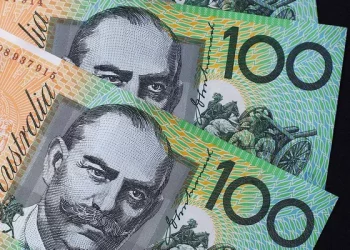Greece, a nation steeped in history and culture, became a member of the Eurozone in 2001. This decision marked a significant shift in its monetary policy and economic structure, aligning its economy more closely with those of other European Union (EU) member states. As the Euro continues to be a pivotal currency in global finance, understanding Greece’s relationship with it is essential for investors and economists alike. This article delves into Greece’s adoption of the Euro, its economic implications, and the broader impact on both domestic and international markets.
Historical Context
Pre-Euro Era
Before the introduction of the Euro, Greece operated under its own currency, the drachma. The drachma, one of the oldest currencies in the world, faced significant volatility and devaluation throughout the 20th century. The country’s economic struggles, including high inflation rates and fiscal instability, fueled discussions about joining the European Monetary Union (EMU).
Entry into the Eurozone
In 1999, Greece initially adopted the Euro as a virtual currency for accounting purposes, but it wasn’t until January 1, 2001, that the Euro was officially launched in Greece. This transition was seen as a way to stabilize the Greek economy, enhance trade relationships, and attract foreign investment.
The 2008 Financial Crisis and its Aftermath
The global financial crisis of 2008 severely affected Greece, exposing significant vulnerabilities within its economy. The country faced soaring debt levels and a lack of competitiveness, leading to a financial bailout from the EU and the International Monetary Fund (IMF). The crisis sparked debates about Greece’s place in the Eurozone, with some questioning whether the country should revert to the drachma.
The Economic Implications of Using the Euro
Inflation Control and Stability
One of the primary benefits of adopting the Euro has been enhanced price stability. The European Central Bank (ECB) manages monetary policy for the Eurozone, focusing on controlling inflation. For Greece, this has meant lower inflation rates compared to the pre-Euro era, contributing to more predictable economic conditions.
Impact on Trade and Investment
The introduction of the Euro facilitated easier trade between Greece and other Eurozone countries. With a common currency, transaction costs decreased, and price transparency increased. This has led to a rise in foreign direct investment (FDI) as international investors viewed Greece as a more stable and predictable environment.
Fiscal Constraints and Challenges
While the Euro brought numerous benefits, it also imposed strict fiscal constraints on Greece. The Stability and Growth Pact requires member states to maintain budget deficits below 3% of GDP and public debt levels below 60% of GDP. Greece struggled to comply with these criteria, leading to significant repercussions during the debt crisis.
Greece’s Economic Recovery Post-Crisis
Structural Reforms and Austerity Measures
In response to the financial crisis, Greece implemented a series of structural reforms and austerity measures aimed at stabilizing its economy. These included pension reforms, tax increases, and public sector cuts. While necessary for fiscal consolidation, these measures also sparked public unrest and criticism.
Economic Growth and Recovery Indicators
In recent years, Greece has shown signs of recovery. The economy has gradually returned to growth, with key indicators such as GDP, employment rates, and exports improving. This recovery has been bolstered by tourism, a significant sector in the Greek economy, benefiting from the Euro’s stability.
See Also: Why Doesn’t Denmark Use the Euro?
Role of International Institutions
International institutions, including the IMF and the European Stability Mechanism (ESM), played a critical role in Greece’s recovery. Financial assistance programs provided the necessary liquidity to stabilize the economy while encouraging structural reforms. The ongoing support has been crucial in maintaining investor confidence.
The Euro’s Influence on Greek Society
Public Perception of the Euro
The public sentiment towards the Euro has evolved since its introduction. Initially viewed as a symbol of economic stability and European integration, the Euro became associated with austerity and economic hardship during the crisis. Today, while many Greeks appreciate the benefits of a stable currency, skepticism remains regarding the impact of EU policies on national sovereignty.
The Social Cost of Economic Policies
The austerity measures implemented in Greece had profound social implications. Increased unemployment rates and reduced public services led to significant hardship for many citizens. This social cost has sparked debates about the balance between fiscal discipline and social welfare, highlighting the complexities of maintaining a common currency amid diverse national circumstances.
Comparative Analysis with Other Eurozone Countries
Performance Metrics Across the Eurozone
When analyzing Greece’s economic performance in relation to other Eurozone countries, key metrics such as GDP growth, unemployment rates, and debt levels provide valuable insights. Greece’s recovery trajectory has been slower compared to countries like Germany and the Netherlands, which have benefitted from stronger export markets and more robust fiscal policies.
Case Studies: Spain and Portugal
Comparing Greece to other southern European countries such as Spain and Portugal can shed light on different recovery paths within the Eurozone. Both nations faced similar economic challenges during the crisis but have since experienced varying degrees of recovery. Analyzing their approaches to structural reforms, fiscal policies, and economic resilience can provide lessons for Greece’s ongoing recovery.
Conclusion
Greece’s relationship with the Euro is a complex interplay of economic benefits, social challenges, and political dynamics. While the adoption of the Euro has provided stability and growth opportunities, it has also imposed fiscal constraints that have tested the resilience of the Greek economy. As Greece continues to navigate its recovery journey, the interplay between national interests and European integration will remain a critical factor in shaping its future. Investors and policymakers alike must remain vigilant to the evolving landscape as Greece works to solidify its place within the Eurozone while striving for sustainable economic growth.
Related Topics:
























